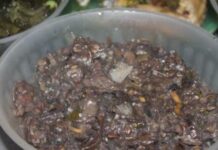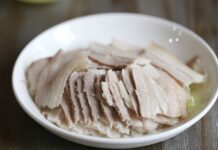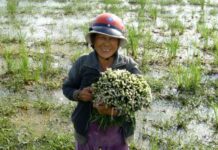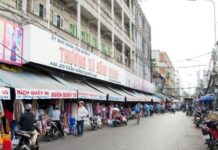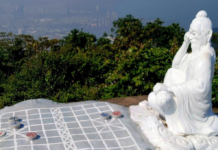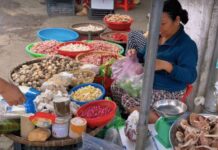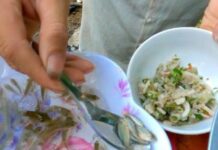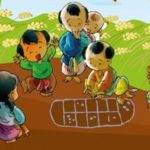Superstitions and customs surrounding childbirth are prevalent in many cultures, and Vietnam is no exception. While some of these traditions may seem unusual or unfounded, they are deeply rooted in cultural beliefs and are often followed with the best intentions for the newborn’s health and well-being. Let’s explore some of these unique customs and their significance.
Note: The content below is for reference only. Always consult with a healthcare professional or reputable expert before following any cultural practices or advice.
10 Vietnamese Customs for Welcoming a Newborn Home
Adopting the Baby as a Child of Buddha or a Saint
In Vietnamese culture, the time and year of a child’s birth are considered crucial. It is believed that babies born at an inauspicious hour or whose age is incompatible with their parents will be frail and sickly. To counter this, some parents choose to symbolically adopt their child as a disciple of Buddha or a saint.
This adoption does not mean the parents are giving up their child. Instead, it is a way to seek the protection and blessings of the divine entity, ensuring the baby’s safety, health, and well-being. The child remains with their biological parents, and the adoption is purely symbolic. When the child turns ten, there is a ritual to “redeem” the child from the temple or saint’s care.
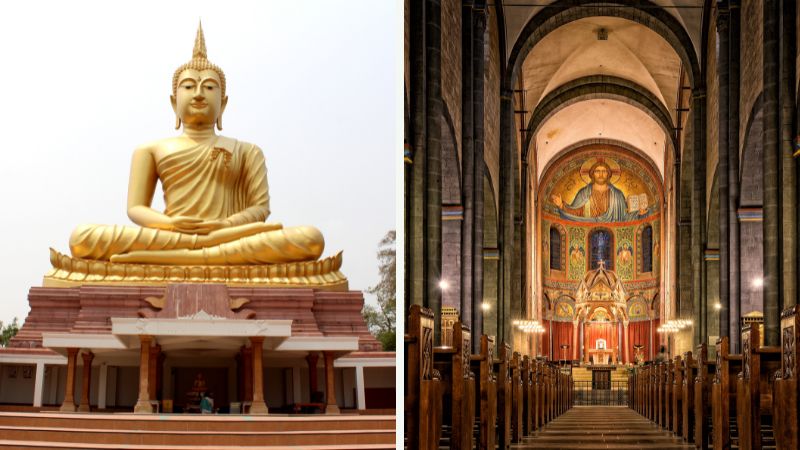 Adopting the Baby as a Child of Buddha or a Saint
Adopting the Baby as a Child of Buddha or a Saint
Choosing a “Lucky” Person to Bring the Baby Home
It is considered auspicious to select a person with a “lucky touch” to bring the baby home from the hospital. After 72 hours, a respected elderly woman who is compatible with the baby’s age, agile, and experienced in handling infants is chosen to bring the baby home. This is believed to bring good fortune and ensure the baby’s well-being as they grow up.
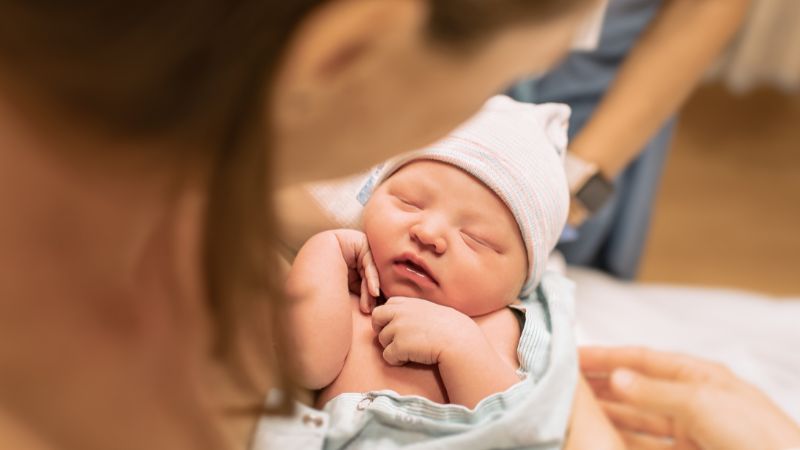 Choosing a “Lucky” Person to Bring the Baby Home
Choosing a “Lucky” Person to Bring the Baby Home
Warding Off Evil Spirits from the Newborn
According to Vietnamese folklore, newborns are particularly vulnerable to malevolent spirits. To protect the baby during their journey home, families take various precautions. These include dressing the baby warmly without restricting their breathing, applying a small amount of soot or lipstick on the baby’s forehead, and keeping a knife and chopsticks close to the mother and child.
Additionally, families often choose an auspicious time for the baby’s homecoming, as certain hours are believed to be prone to evil spirit appearances, even during daylight. A prayer to the ancestors for protection is also customary before the baby’s arrival.
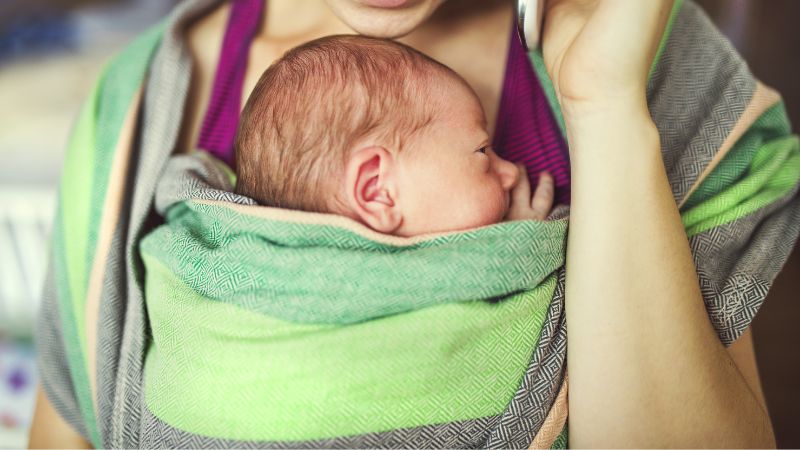 Warding Off Evil Spirits from the Newborn
Warding Off Evil Spirits from the Newborn
Walking Over a Fire Pit
Fire is considered purifying in Vietnamese culture, and walking over a fire pit is believed to help the baby shed any negative spiritual influences. Families prepare a new broom, burn it along with joss paper, and sprinkle a little salt. Once the fire has died down, the mother carries the baby over the embers before entering the house. Extreme caution is necessary to prevent burns.
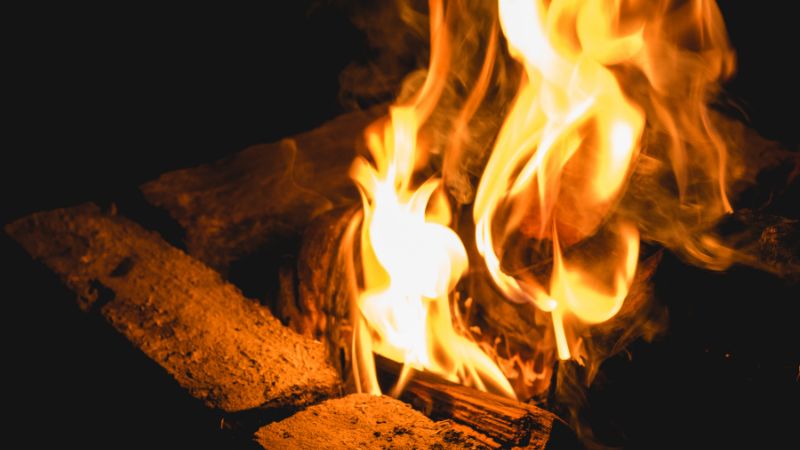 Walking Over a Fire Pit
Walking Over a Fire Pit
Burning the Baby’s “Vía”
If a newborn cries incessantly despite all efforts to soothe them, it is believed that an evil spirit has attached itself to the child. To remedy this, a ritual is performed involving burning salt and fragrant wood, using a worn-out broom or coat, and chanting incantations to drive away the spirit.
Additionally, if the baby falls and is startled, a small ceremony called “hót vía” is conducted. A boiled egg is prepared and divided into seven pieces for a boy and nine pieces for a girl. The egg is then taken to the spot where the baby fell or their bed, and the baby’s “vía” is called out. The egg is then mixed with rice and exchanged seven times for a boy and nine times for a girl. Finally, the baby is fed this mixture, even if symbolically, to restore their “vía.”
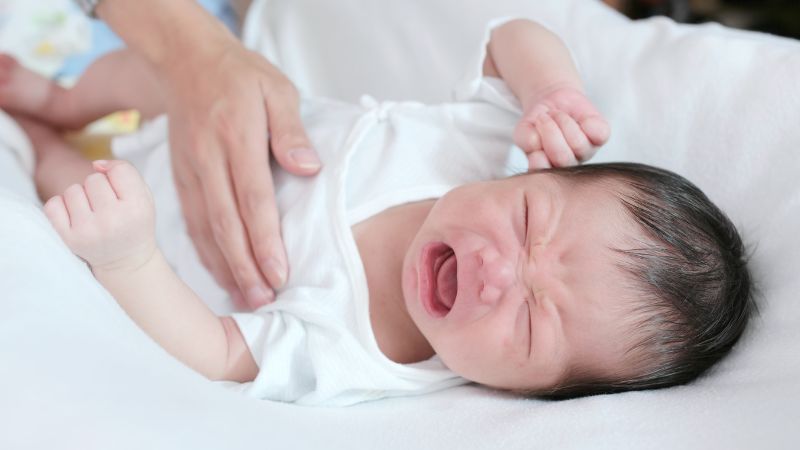 Burning the Baby’s “Vía”
Burning the Baby’s “Vía”
Giving the Baby a Nickname
While it is common today to give babies cute nicknames, this tradition also has roots in folklore. It is believed that using nicknames at home helps divert evil spirits’ attention from the baby. Hence, nicknames like Tí, Tèo, Cu, or modern ones like Bin or Bo, are given. In the past, these nicknames would accompany a boy until he was old enough to be registered and a girl until she married.
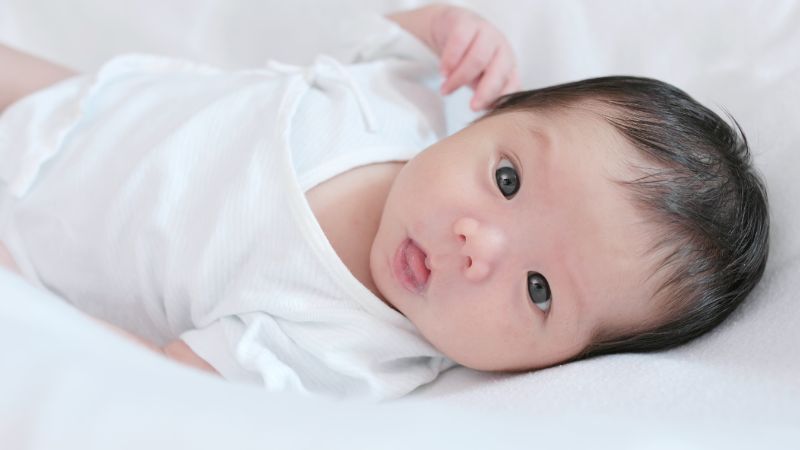 Giving the Baby a Nickname
Giving the Baby a Nickname
Offering Thanks to the Midwives
A longstanding tradition, this custom involves expressing gratitude to the midwives who are believed to have played a pivotal role in the baby’s birth. A ceremony called “đoàn du phạn” is held, along with offerings of 12 pairs of shoes, betel leaves, and various fruits and cakes. The number 12 symbolizes the 12 midwives who are thought to have contributed to the baby’s birth.
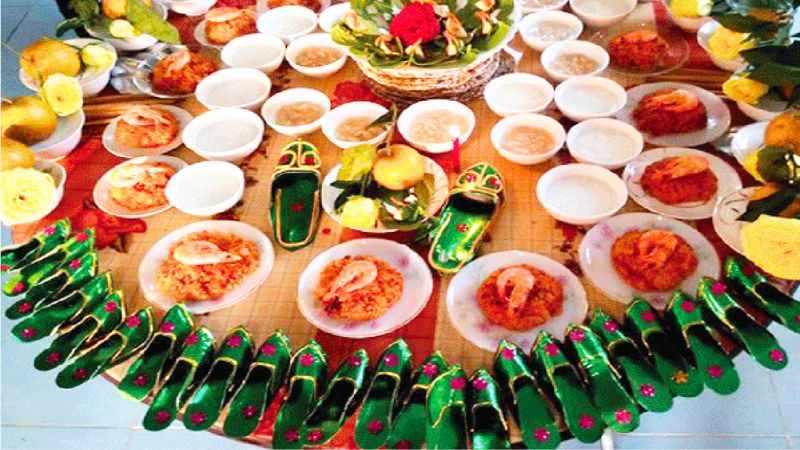 Offering Thanks to the Midwives
Offering Thanks to the Midwives
Applying a Seal of Blessings
Temples and shrines may imprint a seal of blessings on a piece of cloth, which is then made into a garment for the baby. This is believed to bring good fortune, enhance the baby’s intelligence, and ward off evil spirits. The garment is usually washed and dried separately and worn only on special occasions to preserve its condition.
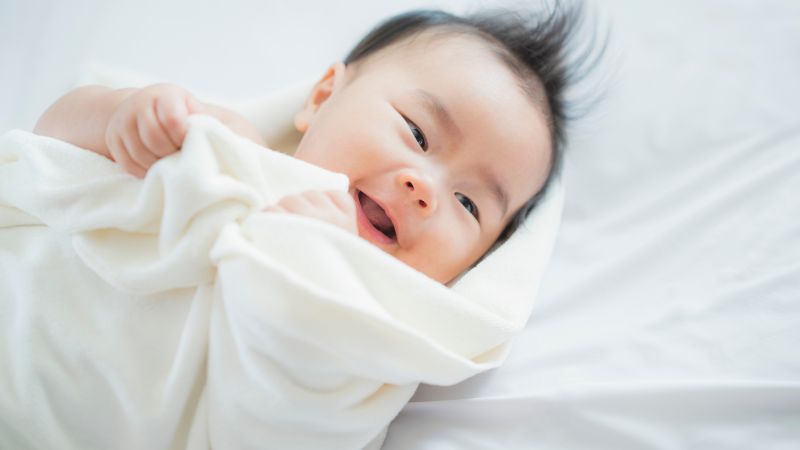 Applying a Seal of Blessings
Applying a Seal of Blessings
Hanging Garlic by the Baby’s Bedside
Garlic is known for its ability to ward off evil spirits, so it is hung by the baby’s bedside or placed in a sachet near their sleeping area. This is believed to promote peaceful sleep and protect the baby from supernatural disturbances.
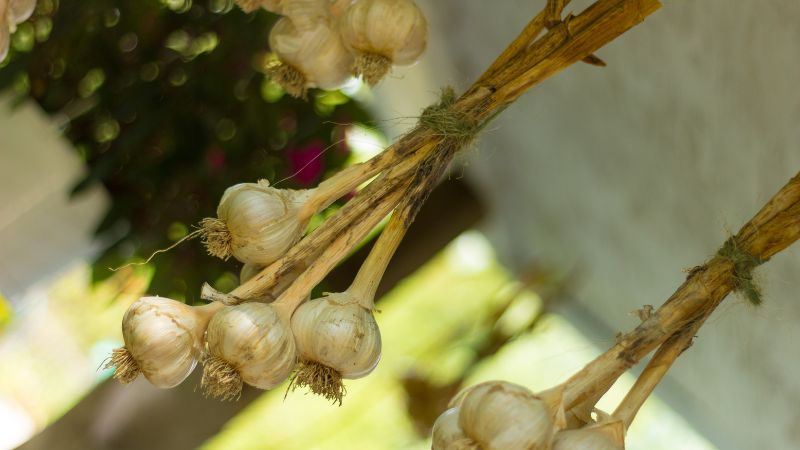 Hanging Garlic by the Baby’s Bedside
Hanging Garlic by the Baby’s Bedside
Refraining from Praising the Baby
While it is natural for adults to coo and praise newborns, this is discouraged in Vietnamese folklore. It is believed that compliments like “beautiful,” “cute,” or “healthy” attract the attention of evil spirits, leading to the baby’s slow development and frailty.
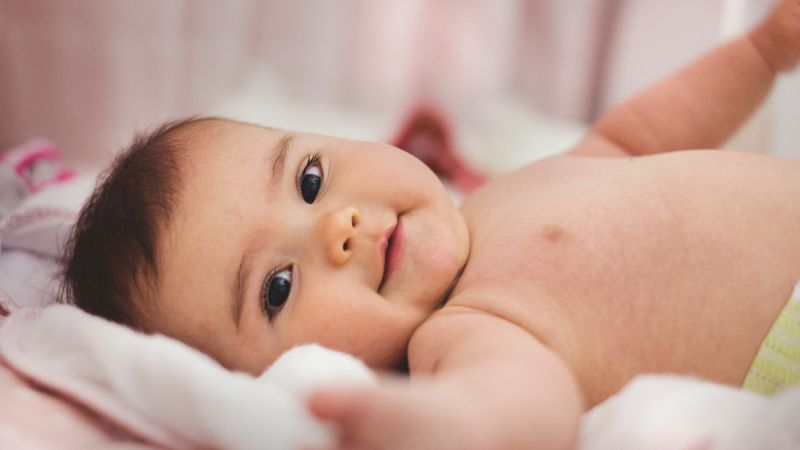 Refraining from Praising the Baby
Refraining from Praising the Baby
2. Benefits of These Rituals
These unique customs are believed to bring about several benefits for the newborn:
- Easier to care for, faster development, and reduced crying.
- Improved sleep quality without sudden startles.
- Protection from evil spirits and their negative influences.
- Garlic and knives are also believed to protect adults from evil spirits when traveling or out at night.
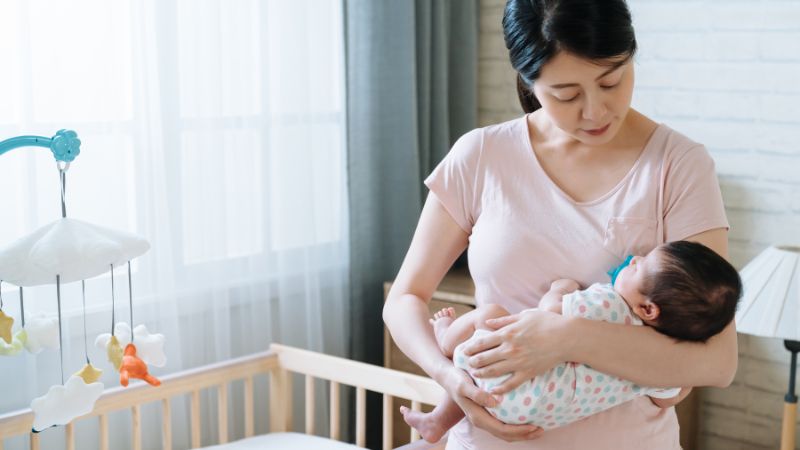 Benefits of These Rituals
Benefits of These Rituals
3. Precautions When Bringing the Baby Home
Here are some additional precautions to take when bringing a newborn home:
- Refrain from praising the baby.
- Perform the “burning vía” ritual if the baby is excessively fussy.
- Prepare the necessary items for the baby’s homecoming.
- Place a mulberry branch in the baby’s room, if possible.
- Choose a “lucky” person to bring the baby home.
- Have the baby sleep on a separate mattress for easier care.
- Perform a room purification ritual to dispel negative energies.
- Avoid using the baby’s given name at home, especially at night.
- After seven days for a boy and nine days for a girl, perform a ceremony to thank the midwives.
- Do not take a baby under one month old outside at night or during midday heat.
- Dress the baby in clothes worn by healthy, intelligent children to absorb their positive traits.
- Have a fire pit ready at the entrance for the mother and baby to walk over to reduce crying.
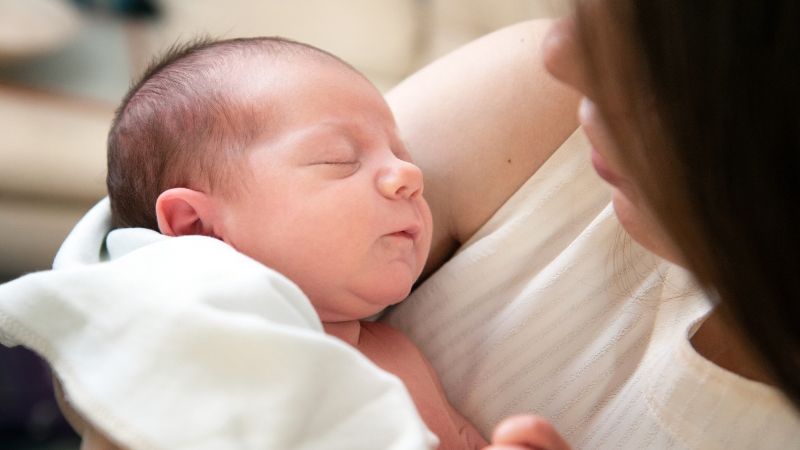 Precautions When Bringing the Baby Home
Precautions When Bringing the Baby Home
In conclusion, these age-old customs are steeped in cultural significance and are often followed with the best intentions for the newborn’s well-being. While some may seem unusual, they reflect the rich traditions and beliefs of Vietnamese folklore.
Source: Marrybaby.vn











